
COMMUNIST PARTY OF INDIA (MARXIST)
LEADERS AND ACTIVISTS: BRIEF BIOGRAPHIES
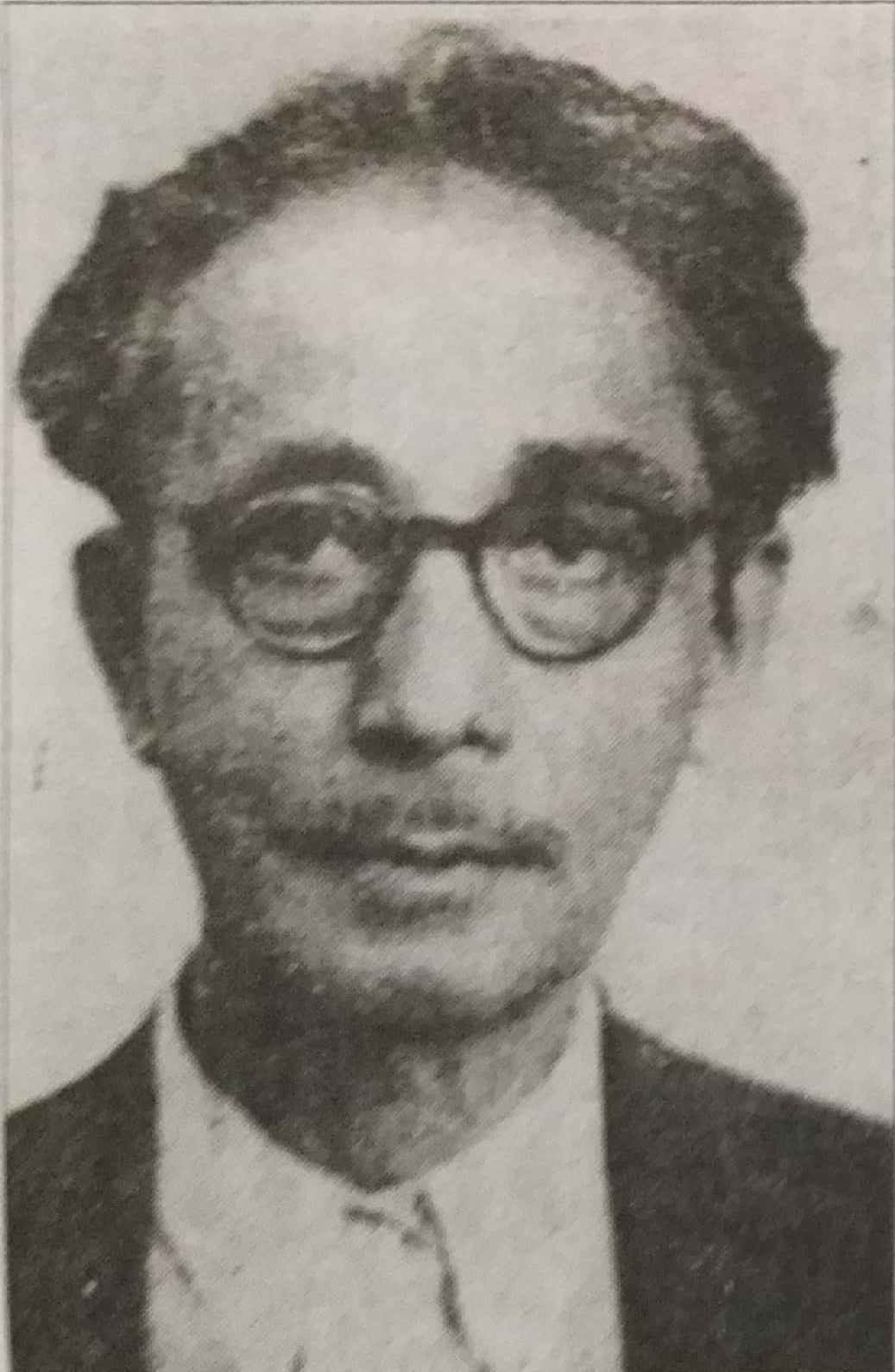
Muzaffar Ahmed (1889-1973)
Muzaffar Ahmad was one of the founders of the communist movement in India. Born in an impoverished middle class Muslim family in Sandip (now in Bangladesh) on August 5, 1889, Comrade Muzaffar Ahmed started his career as a Bengali Muslim literary activist. He also edited daily Nabajug in 1920 with the rebel socialist poet, Qazi Nazrul Islam. He was convicted in the Kanpur Communist Conspiracy Case of 1924 alongside Shaukat Usmani, S. A. Dange and Nalini Gupta for establishing an early communist network and developing a correspondence and contacts with M. N. Roy and Comintern. Upon release he participated in the communist conference in Kanpur in 1925 and was elected to the Presidium of the CPI when it was reorganized in 1927. He was a key organiser of the Workers and Peasants Party of Bengal, the first socialist platform in the region and open organisation of the banned CPI. He edited Langal (Plough) and Ganabani (Voice of the People) on its behalf and was active in organising several strike actions, including that of outcaste sweepers of Calcutta and Howrah municipalities. He was elected Vice-President of AITUC at the Jharia session in 1928. After being convicted in the Meerut Communist Conspiracy Case of 1929-1931 as the Chief Accused he was released in 1936, having served the longest sentence. He was in and out of prison the 1940s, 50s and 60s in late colonial and Independent India. He founded the National Book Agency, the Party’s publishing house, and Ganashakti press. He authored numerous articles and several books, including his autobiography, Amar Jiban o Bharater Communist Party (Myself and the Communist Party of India), and Qazi Nazrul Islam Smritikatha (Qazi Nazrul Islam: Recollections). He was an advocate of a communist movement in India independent of Peking and Moscow and joined the CPI(M) when the CPI formally split in 1964. He was a member of the Central Committee of the Communist Party of India (Marxist) at the time of his death in December 18, 1973.
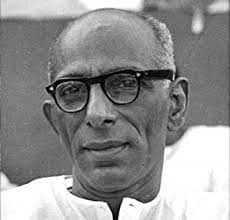
Makineni Basavapunnaiah (1914-1992)
Makineni Basavapunnaiah was one of the stalwarts and foremost theoreticians of the Indian Communist movement. Comrade MB, as he was affectionately known, was the member of Polit Bureau of the Communist Party of India (Marxist). He was also editor of the CPIM’s central organ, People’s Democracy.
Born on December 14, 1914, he belonged to the generation which became deeply influenced by the upsurge in the freedom movement in early 1930s. Disillusioned with the withdrawal of the movement by the then Congress leadership and increasingly convinced that the problems of the Indian people could be comprehensively resolved only under a socialist system, Comrade MB joined the fledgling Communist Party of India during 1934-35.
Dedicating himself totally to the cause that he embraced, MB first started out as a district level activist in Guntur, Andhra Pradesh and by 1943 was elected to the CPI state committee and its secretariat in Andhra. He was among the outstanding leaders of the glorious Telengana people’s struggle and along with stalwarts like Comrade P. Sundarayya, was deeply involved in the organisation, execution and conduct of the Telengana struggle. It was during this period that MB emerged as one of the top Indian communist leaders. He was elected to the central committee at the Second Congress of the CPI in 1948 and elected to the Polit Bureau in June 1950.
Steeled by the experiences of the Telengana struggle, his years of underground life and repression by the Congress government, Comrade MB was one of the initiators of the inner party discussions in the united CPI on the crucial issue of the strategy and tactics of the Indian revolution, a debate which finally culminated in the formation of the CPI(M) in 1964. He remained a member of the CPI(M) Polit Bureau throughout and was a pillar of strength to the Party, giving it ideological guidance and formulating its tactics in the most complex of circumstances.
Comrade MB’s sterling contribution to the Indian communist movement came in the form of steadfast adherence to the revolutionary tenets of Marxism-Leninism and its liberating influence. A relentless campaigner against all deviations in the Indian as well as international communist movement, he authored many of the crucial drafts that provided the ideological basis for the fight against revisionism in the earlier period and left-adventurism later.
During the intense ideological discussions within the Indian communist movement, Comrade MB was given the responsibility to discuss these issues with world communist leaders. He was in the four-member delegations in discussions with the CPSU leadership. He also represented the Indian Communists at the meeting of the world communist parties in Moscow in 1957.
In addition to his immense contributions to the communist movement, both in theory and practice, Comrade MB made a mark as parliamentarian in course of his 14 year term in the Rajya Sabha. He was a prolific writer, gifted with a sharp pen and lucid style. His entire life was dedicated to the cause of socialism and the liberation of the Indian people, and he worked with tireless energy till the day of his death.
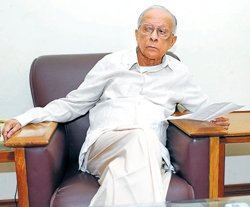
Jyoti Basu (1914-2010)
Jyoti Basu one of the stalwarts of the Communist movement in India was born on 8th July, 1914 at Kolkata. His father Nishikanta Basu and mother Hemlata Devi lived in Kolkata though their ancestral home was in village Bardi in Dhaka. Jyoti Basu spent his childhood in Kolkata, mostly in their house in Hindusthan Park in South Kolkata, where he lived the most part of his life too.
Jyoti Basu passed his Senior Cambridge and Intermediate from St. Xaviers’ school and later was admitted in Presidency College with Honours in English. Though not an active political family, Basu’s father was supportive of the national struggle. While in school, Basu was inspired by the Chittagong armed rebellion led by Surya Sen in 1930.
In 1935, Basu went to England to study law. In a volatile international situation, during his university days, his political thoughts were shaped in ideological debates against fascism. Basu became an active member of the India League, a body of Indian students, led by V.K. Krishna Menon. Among others, Bhupesh Gupta and Snehangshukanta Acharya were his friends in student days. Jyoti Basu gradually came into contact with leaders of the Communist Party of Great Britain. He began to participate in Marxist study circles and joined in the activities of the Communist groups in London, Oxford, and Cambridge. He came in close contact with Harry Pollitt, Rajni Palme Dutt, Ben Bradley and other leaders of CPGB. They had a great influence in shaping the ideas and life of young Basu. Jyoti Basu became the first secretary of London Majlis, an association of Indians that felicitated Jawharlal Nehru when he was in London. Basu decided that he would join the Communist Party after returning to India.
Basu returned to India in 1940 and immediately contacted the Party leaders. Though he enrolled himself as a barrister in Calcutta High Court, he never practiced simply because he was determined to become a wholetimer of the Party.
Basu became the secretary of Friends of Soviet Union and Anti-Fascist Writers’ Association in Kolkata. As member of the Party, his initial task was to maintain liaison with underground Party leaders. He was entrusted with responsibilities in the trade union front from 1944. In that year, the Bengal Assam Railroad Workers’ Union was formed and Basu became its first secretary. Basu was elected to Bengal Provincial Assembly in 1946 from the Railway Workers constituency. From that day on, Basu became one of the most popular and influential legislators for decades to come. He showed how the Communists can use the legislative forums for strengthening struggles.
Basu played a very active role in stormy days of 1946-47 when Bengal witnessed the Tebhaga movement, workers strikes and even communal riots. Everywhere the struggling people saw Basu by their side.
Jyoti Basu was the secretary of the West Bengal Provincial Committee of the Party from 1953 to January 1961. He was elected to Central Committee of the Party in 1951. He was a member of the Polit Bureau of the CPIM from 1964 onwards. He was elected as a special invitee to PB in 19th Congress of the Party in 2008.
After the country gained independence, he was elected to the assembly from Baranagar in 1952. He was elected to the West Bengal Legislative Assembly in 1952, 1957, 1962, 1967, 1969, 1971, 1977, 1982, 1987, 1991 and 1996. Though an elected member, Basu was arrested several times during the 1950s and ’60s and for certain periods he went underground to evade arrest by the police.
In 1962, Jyoti Basu was one amongst the 32 members of the National Council who walked out of the meeting. When the Communist Party of India (Marxist) was formed in 1964 as a result of the ideological struggle within the Communist movement, Basu became a member of the Polit Bureau. He was, in fact, the last surviving member of the “Navaratnas”, the nine members of the first Polit Bureau.
During the days of India-China border conflict, Basu, along with other leaders of the Party, were accused of being “agents of China” and faced attacks from the ruling class parties and the anti-Communist media.
1n 1967, Basu became the deputy Chief Minister in the first West Bengal United Front Ministry and again in 1969. These two governments provided a great stimulus in unleashing mass and class struggle in West Bengal. Jyoti Basu played an important role in intertwining the struggle and running the government. In 1970, he narrowly escaped an assassination attempt at the Patna Railway Station by the Anandmargis. In 1971, Basu’s car and public meeting were attacked by Congress miscreants at least twice. Though the Communist Party of India (Marxist) became the single largest party in the assembly elections in 1971, the Party was refused the chance to form a ministry and Presidents’ Rule was imposed in West Bengal. The 1972 elections were rigged and Jyoti Basu was forced to boycott the elections. Basu famously declared the new assembly as “assembly of the frauds” and CPI(M) boycotted the assembly for the next five years. West Bengal faced severe repression and terror during the semi-fascist Congress regime in this period. The CPI(M) and the Left forces courageously fought the onslaught and Basu was one of the leading figures of that heroic resistance by the people.
In 1977, the Left Front Government was formed as a product of the democratic and mass struggles and Basu became the Chief Minister. He was 63 then. A new, vigorous era in his life began. The very first announcement by Basu after he was sworn in was that the government would not be run from Writers’ Building alone. The people would be very much part of it. Under Basu’s leadership, the LF government initiated far reaching measures in the interests of toiling people. The land reforms, decentralization through panchayats, guaranteeing trade union rights of the workers, giving widespread relief to different sections of the society, spread of education marked a radical departure in governance in our country. Under LF government, West Bengal witnessed excellent advancement in agriculture and later it was under his leadership that the state government took serious initiative in industrialization of the state. In office continuously for 24 years, Basu was the longest serving chief minister in the country.
One of the major contributions of Basu as Chief Minister was to raise the issue of Centre-State relations at the all India level. On the one hand, Basu led the struggle against discrimination against West Bengal and successfully built the Haldia Petro Chemicals, Bakreswar Thermal Power Station etc. On the other hand, he could mobilize other state governments and various political parties on the issue.
Jyoti Basu played a significant role in national politics and his intervention in important junctures proved to be crucial. Basu played a prominent role in mobilizing anti-Congress secular opposition forces during the regimes of Indira Gandhi, Rajiv Gandhi and Narasimha Rao. He also played an important role in mobilizing secular forces against the communal BJP. In 1996, his name was proposed by the secular allies for Prime Ministership. But the CPI(M) Central Committee decided to support the government from outside.
Jyoti Basu was one of the main campaigners for the Party at the national level. He visited all the states and areas a number of times to address public meetings and rallies. He was particular about attending the open sessions of the CITU all India conferences.
Basu was all along associated with the trade union movement and was a champion of the cause of working class. He was a Vice President of CITU since its inception in 1970.
In November 2000, Basu voluntarily retired from Chief Ministership but he continued to lead the Party in West Bengal. Despite his ill health, Basu participated in Party meetings and in election campaign in 2006 also.
On 1 January 2010, Basu was admitted to AMRI hospital (Bidhannagar, Kolkata) after he was diagnosed with pneumonia. On 16 January 2010, it was reported that he was suffering from multiple organ failure and that his health condition had become extremely critical. Seventeen days after being taken ill, he died on 17 January 2010.
His donation of his body to medical science was made with the following pledge on April 4, 2003: “As a Communist, I am pledged to serve humanity till my last breath. I am happy that now I will continue to serve even after my death.”
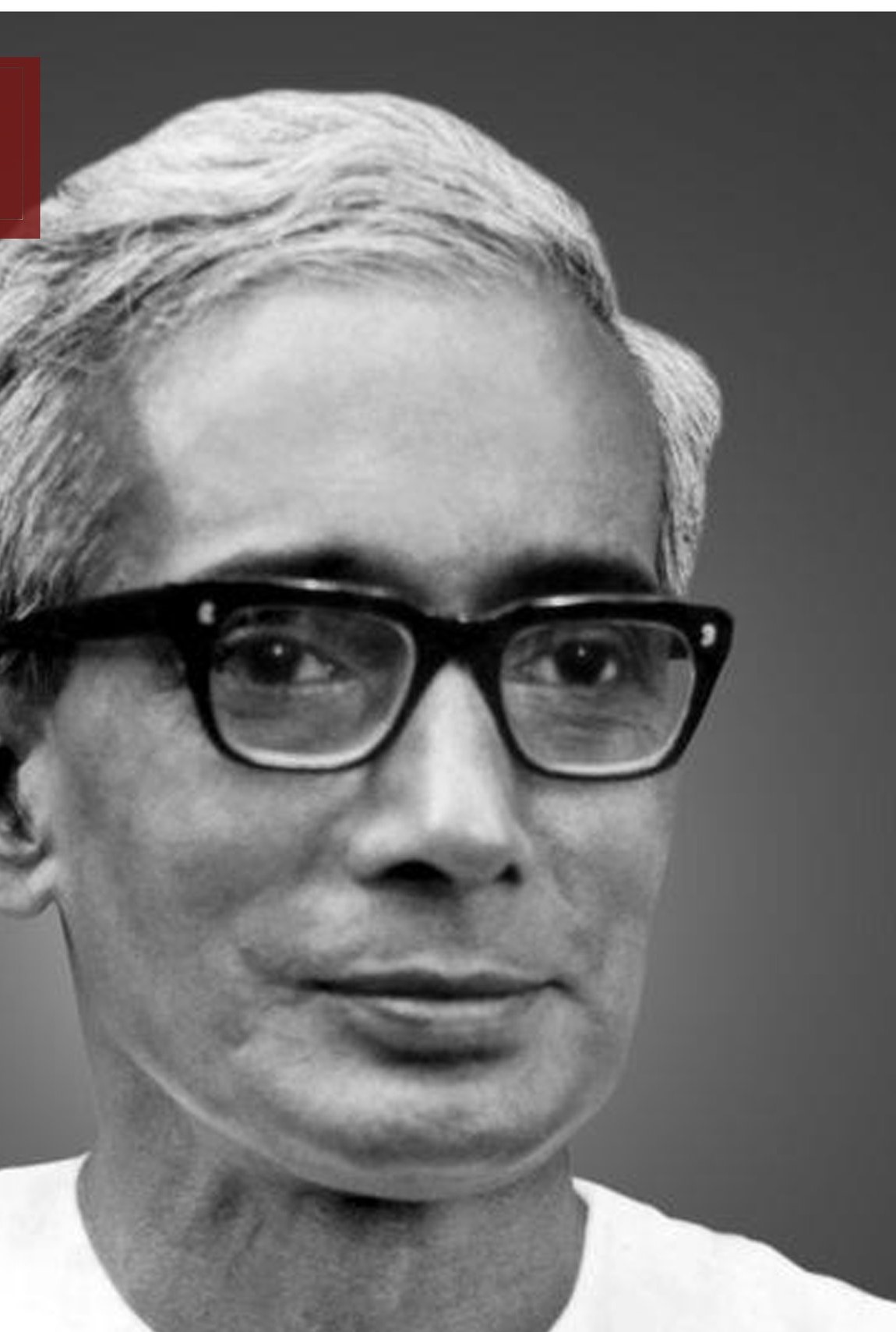
Promode Dasgupta (1910-1982)
Promode Dasgupta, a pioneer of the communist movement in India and one of the founders of Communist Party of India (Marxist) was born on July 7, 1910, in Faridupur district now in Bangladesh. While a student in the Brajmohan College in Barisal (now in Bangladesh) he joined the revolutionary group Anusheelan Samity to fight against British imperialism. Those were the days when the revolutionary youth of Bengal believed that with their individual heroism they can defeat the imperialist rulers and win the country's freedom.
After joining Anusheelan Samity, Comrade Promode shifted his political activities to Calcutta. He was arrested in connection with the famous Machua Bazzar Bomb Case in 1929 along with a number of others like Satish Pakrashi, Sudhansu Dasgupta and Satyabrata Sen. Some of them were convicted and sentenced to imprisonment, while there was not enough evidence to convict Comrade Promode. But he was detained under the Bengal Criminal Law Amendment Act. He was for eight years in various jails in Bengal and in the Deoli detention camp. He was released in 1937.
Comrade Promode earned his membership in the CPI on May 1, 1938, and began working among the dock labourers in Calcutta. He worked as the Secretary of the Calcutta District Committee of the Party and was underground for some time during the period of the Second World War. Later he was arrested and was released after the legalisation of the Party in 1942.
It was then that Comrade Promode organised the press of the Bengal Committee of the Party and the publication of its first Bengali Weekly Jan Yudh and later Swadhinata daily. During the attack on the Party in 1948-51 immediately after India attained Independence, Comrade Promode worked underground for some time and was arrested and detained in jail for the rest of the period.
After he came out of jail in 1951, he took a leading part in reorganising the Party in West Bengal and resuming the publication of Swadhinata.
Comrade Promode was elected Secretary of the West Bengal State Committee of the Party at the Burdwan State Conference prior to the Sixth Party Congress in Vijayawada in 1961. He remained in that post till his death. He was elected to the National Council of the CPI at the Fifth Amritsar Congress of the Party in 1958 and to its Central Executive Committee in 1961.
The inner-Party struggle against revisionism which had begun on the eve of the Fourth Congress of the Party reached a climax at the Vijayawada Congress. Comrade Promode was one of the leading comrades who participated in this struggle against revisionism since the Sixth Congress. Later when Naxalite Left-adventurism came on the scene and the Naxalites began their annihilation campaign with the CPI(M) as their main enemy, the Party in West Bengal under the leadership of Comrade Promode fought a bitter political battle to expose the Naxalite ideology and isolate and defeat the Left-adventurists and to defend the Programme of the Party and its organisation.
At the time of the India-China war in October 1962, a section of the leadership of the CPI was arrested and detained. Comrade Promode was one of them. From inside jail, Comrade Promode and other leading comrades guided the party members in West Bengal in the struggle for Marxism-Leninism and proletarian internationalism. He was among the last to be released in West Bengal in 1964. He was in the leadership which organised the Tenali Convention which gave the call for the Seventh Congress Party. Just a few days before the Seventh Congress, Comrade Promode and other West Bengal leaders of the party were arrested and detained. After the Congress, the Party in the rest of the country was also attacked by the Congress rulers and most of the Central, State and district leaders were detained. From inside jail, Comrade Promode and others again gave guidance to consolidate the achievements of the Seventh Congress and strengthen the Party. He was elected to the Polit Bureau of the CPI(M) at the Seventh Congress, a post which he held till his death.
Comrade Promode Dasgupta played a major role in forging and strengthening the Left Front in West Bengal. He died in Beijing on November 29, 1982.
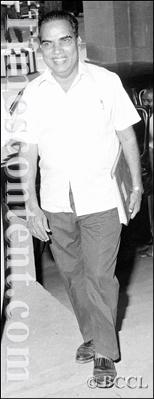
A.K. Gopalan (1902-1977)
A.K. Gopalan who became entrenched in the hearts of millions of people in India by the three letters AKG, was born into the feudal family Ayilyath Kuttyeri in the Makrery village near Peralassery in Kannur in 1902. After working as a school teacher for a short period, he went into active public life as a full time political worker. Resigning his job in 1930 he took part in Salt Satyagraha and was imprisoned. Since then his eventful life was dedicated to the cause of the people of India till his death on 22nd March 1977.
A.K.G. played a leadership role first in the Social reform movement and later in the Congress Socialist Party and the Communist Party. His unflinching commitment to the toiling classes earned him the name “general of the poor”.
The Communist Movement in Kerala gained strength by developing an agenda for social change put forward by the social renaissance movements since the late nineteenth century to a higher level of class consciousness. A.K.G. was one of the leading soldiers in the Guruvayoor Satyagraha which had served as a link between the Social renaissance movement and the political struggle for independence. He also played a leading role in the Paliyam struggle in Cochin and in the struggle of the untouchable lower castes (later called as Harijan’s) for right of the way in Kandoth in Kannur district.
A.K.G. along with P. Krishna Pillai, organised the first trade unions of workers in the Kozhikode-Feroke region and led many strikes. A.K.G.’s contribution to the growth of a militant peasant movement in North region is legendary.
Struggle against injustice was in his blood. The authorities who thought that A.K.G. could be silenced by putting him behind bars were soon proved wrong. A.K.G. organized struggles inside the prison also. He also broke jail once to plunge again in to the struggle of the people. When the whole country celebrated India’s independence on the night of August 15th, 1947 A.K.G was in jail. He was released only on 24th October as a result of the people’s demand.
A.K.G.’s struggles were not confined to Kerala. He was elected as the national President of All India Kisan Sabha in the Calcutta Conference in 1951. A.K.G. was active in almost all the peasant struggles in various states in the country. His name is remembered even now in the remote Indian villages which had witnessed his presence in their struggles. He was arrested during the Maha Gujarat struggle. He was arrested and expelled from Punjab for taking part in the struggle against water cess.
All the struggles led by A.K.G. had unleashed many political storms. He had participated in the Guruvayoor Satyagraha which was a land mark struggle for social reforms in Kerala. Later he led the Hunger march from Kannur to Madras to arouse the consciousness of the people against poverty and unemployment under the British rule. This march in which volunteers travelled by foot for 750 miles and addressed wayside meeting rejuvenated the Congress Movement in Kerala. A.K.G. led the Malabar march in support of the self-rule movement in Travancore. After Independence he led the Peasant march from Kasargod to Thiruvananthapuram in 1960. The struggle led by A.K.G. against the eviction of farmers in Amaravathy in Idukki is a legendary chapter in people’s struggles in Kerala. The struggles against the evictions in Churuli-Keerithode and Kottiyoor are also famous.
A.K.G. took strong positions against the revisionism in the Communist Party in 1964 and became part of the first Polit Bureau of Communist Party of India (Marxist). When left extremism took shape in 1967 he carried forward the struggle against this deviation also. He was imprisoned in 1962 as a China’s agent. He was also Secretary of the CPIM Kerala State committee for a short period of time.
For A.K.G. even the courts provided stage for his struggles. When he was imprisoned for taking part in the Mudavanmugal struggle for distribution of surplus land, he got his release from the court by taking up argument himself. Under the new Indian constitution, Government passed a law using certain loopholes in section 22, for extending the imprisonment of those taken into preventive custody. A.K.G. who was in jail at that time approached the Supreme Court by pointing out that the new legislation was in violation of the fundamental rights ensured under part-3 of the constitution. This case which came to be known as “A.K. Gopalan vs. State of Madras” was a landmark in the constitutional and legal history of India and is in the text book of law graduates.
A.K.G. was a Communist who showed how the avenues of parliamentary democracy could be utilized for advancing the cause of the people. He served as the leader of the opposition since the first Lok Sabha in 1952. His interventions in the parliament espousing people’s issues were unique events in the Parliamentary history. Although failing in health, he took active part in all struggles against emergency declared in 1975. A.K.G. passed away in Trivandrum on 22 March 1977.
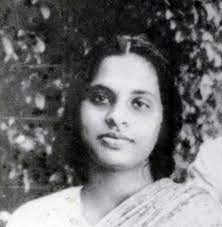
Susheela Gopalan (1929-2001)
Susheela Gopalan, a communist revolutionary and an unabashed partisan for women’s emancipation, was born in a well to do family in the village of Inchamudi, in Thrissur district of Kerala. She was deeply influenced by the freedom struggle and anti-imperialist values that continued to determine her work throughout her life. As a teenager, she addressed a meeting of coir workers who were mobilizing for a historic strike action. Later, through the struggles and leadership of the coir workers, she gained deep insights into the interlinked exploitation of class and gender. She became a member of the Communist Party at the age of 18, and as a young college student, faced the wrath of the authorities for her political work, for which she was jailed several times during her life.
This background informed her work as the founding General Secretary of the All India Democratic Women’s Association that was formed in 1981. She was elected as a Member of Parliament thrice and a Member of the Kerala State Assembly twice, and used these forums in an extremely effective way to advance important reforms in laws concerning women. As a Minister, she took several important policy decisions that brought relief to women, particularly those working in the unorganized sector.
Believing strongly in united struggles, she played an extremely active role in bringing together national women’s organizations on a common set of demands on a wide range of issues that helped their struggles to become dynamic and visible.
She made a special effort to encourage and develop activists, strongly believing in the necessity of bringing all sections of women into the movement and its leadership. Her personal concern and care enabled them to develop as political activists. She strongly believed in the need for them to assert their ideas and beliefs in all spheres, including within the family.
At the time of her death, she was a Patron of the All India Democratic Women’s Association (AIDWA), a Vice President of the Centre of Indian Trade Unions (CITU) and a member of the Central Committee of the CPI(M).
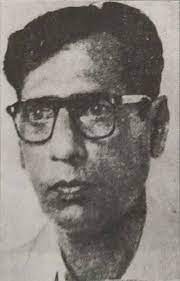
Abdul Halim (1901-1966)
Abdul Halim was one of the earliest organizers of the communist movement in Bengal. He was born on December 6, 1901 in Burdwan district. He resigned his job to take part in the Non-Cooperation Movement in 1921 and was jailed as a result. He came into contact with Muzaffar Ahmad in the early 1920s and joined the Workers’ and Peasants’ Party of Bengal. He subsequently helped to organize the Communist Party when Ahmad and others were imprisoned in consequence of the Meerut Conspiracy Case. Halim played an important part in regrouping the CPI Central Committee in the period 1933-34. He founded the Ganashakti Publishing House. Halim was imprisoned several times both before and after India’s Independence. He was released from prison only a few days before his death on April 29, 1966.
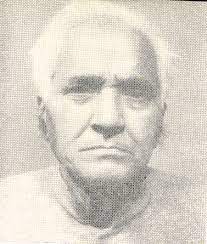
Mohammad Ismail (1912- )
Mohammad Ismail was a legendary communist trade union organiser and leader of CPI(M). He was born at Ranjitpurwa, Unnao District, colonial United Province (later Uttar Pradesh) in 1912. He migrated to and joined the communist movement in Bengal in the mid-1930s and became Secretary of the Bengal Committee of the Communist Party of India in 1949. He was associated with the Indian National Congress, 1930-35 and spent 7 years in Jail and 3 years underground in connection with trade union and political activities. He continued his studies after matriculation in jail and was proficient in Bengali, Hindi and Urdu. He was an organiser of the Tram Workers and organised crucial Tram strikes in late colonial and post-Independence Calcutta which led to expanding communist influence among workers and the public sphere of the city. He was Vice-President of the Centre of Indian Trade Unions after the split in CPI in 1964 and active in the AITUC. He also served as an organiser of the Assam-Bengal Railroad Workers Union, Water Transport Federation of India beginning in 1975, the West Bengal, Committee of Centre of Indian Trade Unions and several other trade unions. He was an adviser, First Indian labour Conference, Delhi and elected as a member of Parliament several times from working class constituencies of West Bengal.
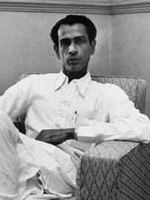
Harekrishna Konar (1915-1974)
Throughout his entire life, HareKrishna Konar worked for the application of Marxist-Leninist ideology to the concrete Indian reality. He was a pioneering figure in movements of peasants and agricultural workers to dismantle the stranglehold of feudalism on them.
Comrade HareKrishna Konar was born on August 5, 1915 at Memari of Bardhaman district. He breathed his last on July 23, 1974 at the age of 59. Comrade HareKrishna Konar started his political activities as a member of “Jugantar” revolutionary group against the British colonial rule in our country. He devoted himself for the cause of independence of the country from his student days. When he was only fifteen, he was sent behind the bars for taking part in the non-cooperation movement in 1930.
He was subsequently sent to Andaman Cellular Jail in 1932 for taking part in the extremist movement to uproot British rule in India. In the Cellular Jail itself he was attracted to the Communist ideology and became member of Communist Consolidation.
He was released from the jail in 1938. He became a member of the Party in the same year. He got involved with the Party activities in Kolkata and Howrah. He was sent to Bardhaman district to strengthen the movement against canal tax. During that time the Communists used to work remaining within the Congress according to the Bradley thesis. Comrade HareKrishna Konar was given responsibility to maintain contacts with the Congress workers of Kolkata, Bardhaman, Howrah and Hooghly districts. He utilised this opportunity to inculcate Leftist ideology among them. Afterwards Comrade HareKrishna Konar involved himself primarily in the Bardhaman district to apply Marxist principles in different activities. He was a pioneer in shaping the peasants’ movement in Bardhaman district. Subsequently he became a leading figure in the peasants’ movement not only in this state but in the entire country.
The British rulers restricted his movements in the industrial areas in the 40s. He was a leading figure in the Ajoy river dam movement in 1944. Comrade HareKrishna Konar was busy with the activities of Communist Party and Kisan Sabha in Bardhaman district during the period of 1944 to 1948. The Communist Party was banned on March 26, 1948. Comrade HareKrishna Konar was arrested and subsequently released after three months. He went underground and worked for the Party remaining underground till 1952.
He was elected from the Memari-Kalna assembly constituency of Bardhaman district in 1957 and from Kalna assembly constituency in 1962. He was re-elected from Kalna assembly constituency in 1967 and became minister for land and land revenue in the first United Front government. HareKrishna Konar played a pioneering role in seizing surplus land held by big land owners in excess of land ceiling laws and kept ’benami’ (or false names) land. The first United Front could sustain only for nine months. Comrade Konar was once again elected from Kalna assembly constituency in 1969 and took charge as the minister for land and land revenue in the second United Front government. The initiative of seizing surplus land was even more extended in seizing the ’benami’ land. He was an inspiration to the peasants’ movements in the state and our entire country. He was a great orator.
He was arrested several times and also went underground for work, evading arrest. The police under British rule and later on, the police of independent India arrested this legendary leader of mass movements and peasants’ struggles. He was arrested under Defence of India Act in 1962 and was released after one year. He was once again arrested under the same act in 1964. For that reason he could not take part in the seventh Party Congress which was held in Kolkata in that very year. But he was elected to the Central Committee of the Communist Party of India (Marxist) in that Party Congress. He was re-elected as the Central Committee member of Party in eighth and ninth Congress respectively held in Kochi in the year 1968 and Madurai in the year 1972.
His steadfast ideological stand against revisionism placed him amid the leading members of the undivided Party. He also played a resolute role in the ideological battle with the Naxalites, opposing the left-sectarian line within the Party and upholding the Marxist-Leninist principle.
Comrade HareKrishna Konar was elected as the general secretary of the All India Kisan Sabha from the national conference of 1969, which was held in Madurai. He was re-elected as the general secretary of AIKS from the conferences held in 1971 and 1973. He discharged his responsibilities as the general secretary of AIKS till he breathed his last. He took part in several international conferences. He was the member of a delegation of Party to China and Vietnam.
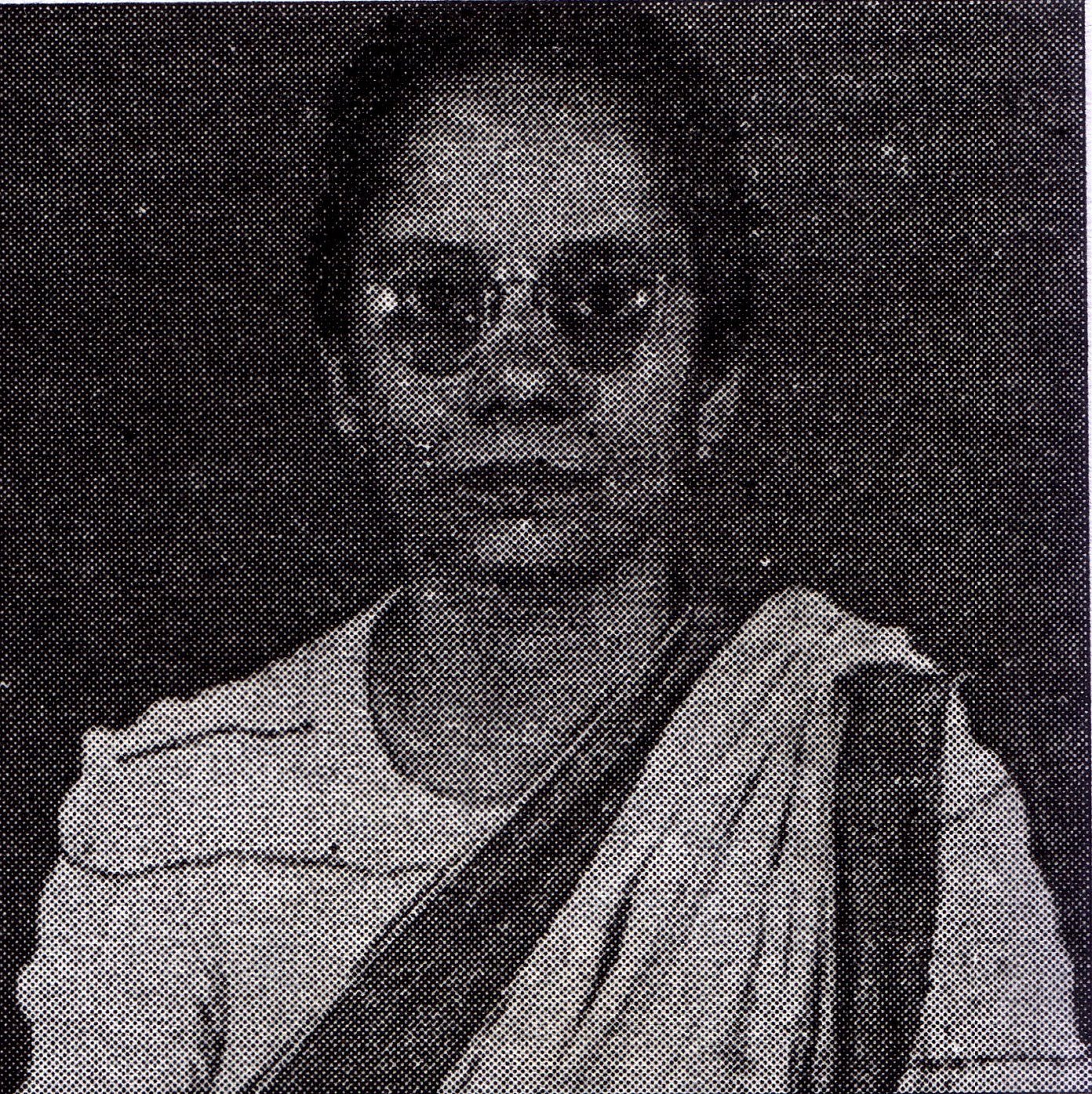
Kanak Mukherjee (1921-2005)
Kanak Mukherjee, Kanak di, as she was affectionately known all over the country, was one among the pioneers of the Progressive women’s movement in India. Kanak di was born in Jessore, now in Bangladesh, on December 30th, 1921. When she was barely 18, she organized a girl students’ association and became an active member of the Bengal Provincial Students Federation. Because of her involvement in the national movement, she was imprisoned soon after and was then externed from Calcutta and other districts of Bengal. She went underground during l940-41 during which time she married Com. Saroj Mukherjee (Former Polit Bureau Member and West Bengal State Secretary of Communist Party of India (Marxist))
In the terrible years of the Bengal Famine of l942-43 she plunged into relief work as a leader of the Mahila Atmaraksha Samity and began her life-long association with the women’s movement and, soon afterwards, she became one of the leaders of the Ganatantrik Mahila Samity which she helped to found. The Samity was in the forefront of not only relief work but was also active in all the struggles of the working people and in the struggle for independence. After 1947 also it was in the forefront of the many mass struggles that West Bengal witnessed.
When, in l981, many State organizations like the Ganatantrik Mahila Samity merged to form the All India Democratic Women’s Association, Kanak di was one of its founders. She played an important role in preparing the Constitution and other documents of the new organization. The West Bengal state unit of AIDWA, its largest unit, has been an inspiration to the organization and to the women’s movement in the country not only because of its strength and the number of issues that it has been taking up but because of the tremendous sacrifices made by its members in defence of democratic and women’s rights and in the struggle against semi-fascist oppression.
Kanak di joined the Communist Party in l938. In 1943, she participated in the first Party Congress of CPI at Bombay as a Delegate. When the communist party split in 1964 she joined CPIM. She was a member of CPIM West Bengal State Committee from 1978 to 1998 and a member of CPI(M) Central Committee from 1989 to 1998.
She went to jail several times and for long periods in l951 and during the Emergency. She has served in public life as an alderman and was elected twice (in 1978 and 1984) to the Rajya Sabha. Her intellectual prowess not only ensured a place for her as a University lecturer but also made her a lyrical poet and a consummate and compulsive writer. She edited the journal of the West Bengal Ganatantrik Mahila Samity, Ek Sathe, for decades with dedication. From 1967 to 1981, she was a Professor of English in Calcutta Women’s College. In 1998 she was awarded the title of "Bhubanmohini Dasi" award by Calcutta University for her contribution in the field of literature.
Kanak di’s indomitable spirit and unflinching commitment to the cause that she espoused are an inspiration for all of us. Her poor health in the last several years, her difficulty in walking and the fact that she could hardly see in the last few years of her life never sapped her of her determination to attend meetings and programmes or of her sharp and incisive contribution to debates and discussions. She died after being seriously ill for several days in Kolkota at the age of 83 on March 9, 2005.

EMS Namboodiripad (1909-1998)
EMS Namboodiripad was one of the foremost leaders of the Communist movement in India and one of the founding leaders of the Communist Party of India (Marxist). He was a rare example of a Communist leader who, while hailing from a traditional landlord family, graduated to become the foremost leader of the proletarian revolutionary movement. He spent three years in jail and six years underground.
In his nearly seven decades of public life and revolutionary activities, EMS Namboodiripad left an indelible imprint on the progressive and working class movement of the country. As a young man, he became active in the social reform movement against caste. He left college in 1931 to join the freedom struggle and was jailed in the satyagraha movement. From then onwards, he played an important role in the Congress movement and was one of the founders of the Congress Socialist Party in Kerala. In 1934 he became the all India joint secretary of the Congress Socialist Party. It is in this period that EMS while leading the Congress Party as general secretary of the Kerala Pradesh Congress Party became acquainted with Marxism. He was one of the five members who formed the founding group of the Communist Party in Kerala in 1936. EMS Namboodiripad represented the coming together of the two streams, the anti-imperialist and the anti-feudal struggles, which laid the foundations for the development of a powerful communist movement in Kerala. He was one of the key proponents of Aikya Kerala which led to the formation of Kerala as a unified linguistic state.
EMS Namboodiripad was first elected to the Madras Provincial Legislative Assembly in 1939. As an important leader of the fledgling Communist Party he donated the proceeds of his landed property to the Party. He went underground building the Party in crucial periods between 1939-42 and 1948-50. He was elected to the Central Committee of the Communist Party of India in 1941. He became a member of the Polit Bureau of the CPI in December 1950 and later its secretariat. He became general secretary of the united CPI in 1962.
In 1957, after the state of Kerala was formed in the first elections in 1957, the Communist Party won a majority and EMS Namboodiripad became chief minister of the first elected Communist ministry in India. It was the EMS ministry which initiated the path breaking land reform legislation and other democratic measures, till the ministry was dismissed undemocratically in 1959. EMS Namboodiripad became chief minister of Kerala again in 1967 heading a United Front ministry till 1969.
EMS joined the leading group from the united Party who formed the CPI(M) and was elected to the Central Committee and the Polit Bureau of the Party at the Seventh Congress of the Party in 1964 and he continued to serve in these positions till his death. EMS Namboodiripad was elected the general secretary of Central Committee of the Communist Party of India (Marxist) in 1977 and he led the Party in this capacity till the 14th Congress in 1992 when he stepped down due to ill-health. His leadership in rallying all the Left, democratic and secular forces was invaluable.
EMS was a brilliant Marxist theoretician. He made outstanding contributions to the application of Marxism-Leninism to Indian society and in working out the strategy and tactics of the Indian revolution. His vast body of writings bears the mark of an original and creative mind which mastered the dialectics of Marxist theory. His writings on land relations, Kerala, society and politics and his writings on Marxist philosophy, literature and history – mark him out to be one of the most influential communist thinkers of the country and the world.
His was a life of sacrifice and simplicity. He set an example which has inspired tens of thousands of communists all over the country. In Kerala he was a legend in his lifetime, adored and respected by all sections of the people. Till the last day of his life, despite failing health, EMS kept to his daily routine of writing articles and providing guidance to the Party. The Complete works of Com. EMS was published by Chintha Publishers in 100 Volumes.
He died on March 19, 1998 at the age of 89.
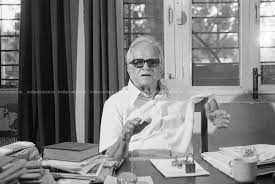
B.T. Ranadive (1904-1990)
One of the pioneers of the Communist Party and the trade union movement in India Com. B. T. Ranadive's revolutionary career, which spanned seven decades, was singular for his deep commitment to Marxism-Leninism and his tireless struggle to develop the revolutionary working class movement.
After a brilliant academic record as a student, BTR joined the Communist Party in 1928. He was one of the pioneers who worked from the Party centre when it was set up in Bombay in 1934-35 and rose to be the General Secretary of the CPI at its Second Congress in 1948. Elected to the Central Committee and Polit Bureau of the Communist Party of India (Marxist) at the Seventh Congress, he remained in these leading positions still his death, on April 6, 1990.
BTR played a crucial role in the fight against revisionism in the united party. He made a big contribution to foundation of the CPI(M) and its basic programmatic and ideological outlook.
BTR was the staunch defender of the Party’s ideological purity. He doggedly opposed both right revisionism and left sectarianism in the communist movement. He made a notable contribution in fighting the Naxalites left-sectarian deviation in the sixties. In his last days, BTR took up the challenge of defending the fundamentals of Marxism-Leninism against the aberrations and distortions of Marxist theory by the leadership of the CPSU.
In the trade union movement, BTR will occupy a special place. He was one of the prominent leaders of the AITUC beginning in the late twenties. He was the initiator of the formation of the CITU (Centre of Indian Trade Unions) and guided its growth as a militant trade union centre till his death. He constantly strove to take the Marxist ideology to the working class, build up class unity and develop the political consciousness of the workers.
See also:
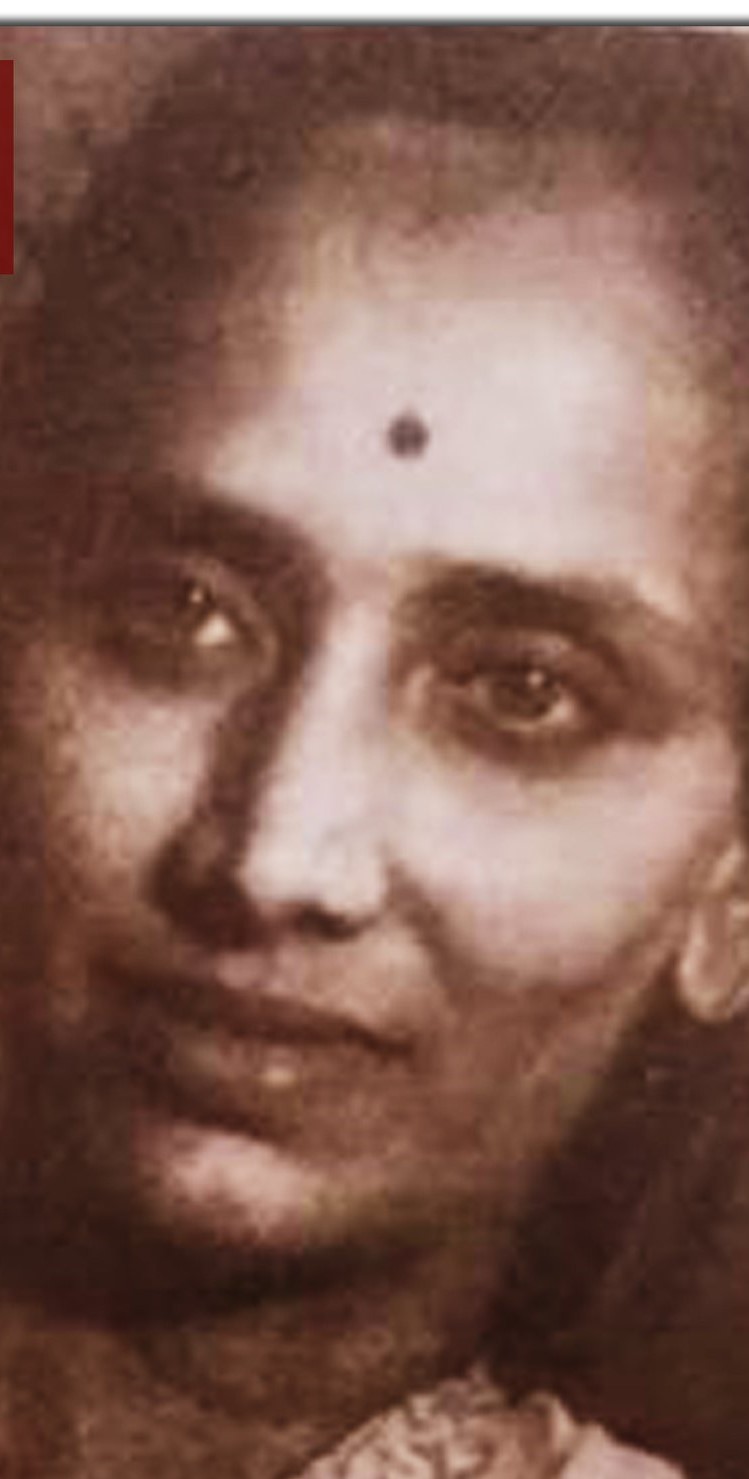
Vimal Ranadive (1915-1999)
Born on 10 April 1915 in a middle class family in Maharashtra, Vimal Ranadive joined the anti-colonial nationalist movement at the tender age of 12-13 as a Seva Dal volunteer. At the age of 15, she was arrested for picketing a foreign cloth shop. The British judge asked her to admit the mistake and apologise. She boldly refused and said, “We know what we have done and for what; we won’t apologise” and went to jail gladly.
Vimaldi developed solidarity with the cause of the poor, the working class and became a communist. She worked to earn a living for her siblings, married a communist, B. T. Ranadive, who had to go underground on the day of their marriage. When her son was just two years old she was jailed for two years. She spent many years underground, including at the time of the Emergency declared by Indira Gandhi.
She was actively involved in organising workers in Mumbai and was part of the upsurge of the Mumbai working class and the naval ratings in 1946.
She was the first General Secretary of the All India Plantation Workers’ Federation, the founder President of the AIFAWH and was the leader of the Beedi workers also. She was the founder Convenor of the AICCWW (CITU) and continued in that position till her death. She was Secretary, CITU and was a member of the central committee of the CPI(M). She was the founder editor of ’The Voice of the Working Woman’ and ’Kamkaji Mahila’.
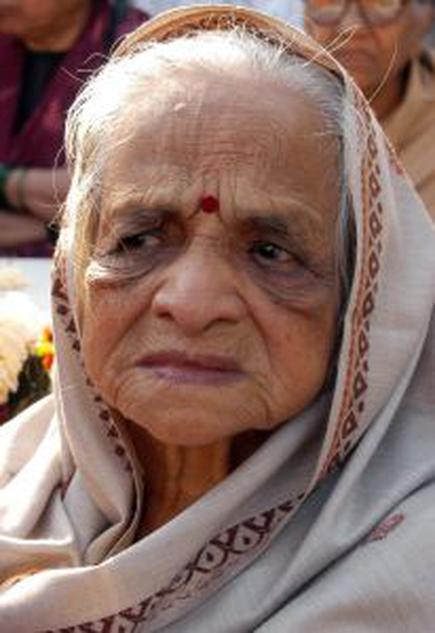
Ahilya Rangnekar (1922-2009)
A long-standing member of the Communist Party of India (Marxist), Ahilya Rangnekar was among India ’s first women communist organisers. Ahilya Rangnekar took up the struggles of women when India was fighting for Independence during the last years of British colonial rule. In 1942-43 the freedom movement drew large numbers of women, particularly from the working class. Ahilya Rangnekar realised that women needed to participate in the freedom struggle and fight for their own rights within this context. She and her comrades started the Parel Mahila Sangh, comprising mainly wives of workers. It demanded maternity benefits and better wages and eventually became the nucleus of the left and democratic womens movement in Maharashtra.
During this period, Rangnekar worked with other well-known women activists and freedom fighters such as Vimal Ranadive, Malti Nagarkar, Maniben Patel (Vallabhbhai Patels sister), Sofia Khan (Khan Abdul Ghaffar Khans wife) and Aruna Asaf Ali.
All these women courted arrest, were on the run, were separated from their families and faced violence as part of the freedom struggle and later as members of political parties. The most noteworthy part is that they never lost direction; they kept on with their work.
Ahilya Rangnekars journey in politics began soon after she finished college in 1943. She grew up in a house full of reformists and liberals and the family supported her political leanings. She was most influenced by her elder brother B.T. Ranadive, who was a leading communist organiser. In 1961, she contested her first civic election on the Communist Party of India ticket. Re-elected many times, she was a corporator for 19 years in Mumbai. Along with her fellow-corporator and friend Mrinal Gore she fought for the rights of hutment dwellers, contract labourers and women who worked for no wages, and for better water supply and other basic civic amenities.
Rangnekar and Mrinal Gore were many a time targets of vicious comments from male politicians such as Shiv Sena supremo Bal Thackeray. Such moments only strengthened their resolve to continue on the path they had chosen. In fact, they formed a formidable duo as corporators.
Wherever there was a struggle, Ahilya Rangnekar was sure to be at the head of it. In 1950, she was deeply involved in the Samyukta Maharashtra agitation, which demanded the unification of the Marathi-speaking regions. In 1962, she was among the many Communist Party members to be arrested after the border conflict with China. She was in jail for three and a half years. In 1974, she was arrested for participating in the nationwide railway strike. During the Emergency she was sent to the Yerawada prison in Pune, where she continued to mobilise women and carried on fighting for their rights.
In 1977, Ahilya Rangnekar contested the parliamentary elections on the Communist Party of India (Marxist) ticket and won from Mumbai North Central constituency. In spite of her political commitments, she never lost touch with the functioning of the Parel Mahila Sangh and its agenda. Eventually, the organisation became the Janwadi Mahila Sangh, which is the State unit of AIDWA. As a founding member of AIDWA, Ahilya Rangnekar was the working president and vice-president of the organisation.
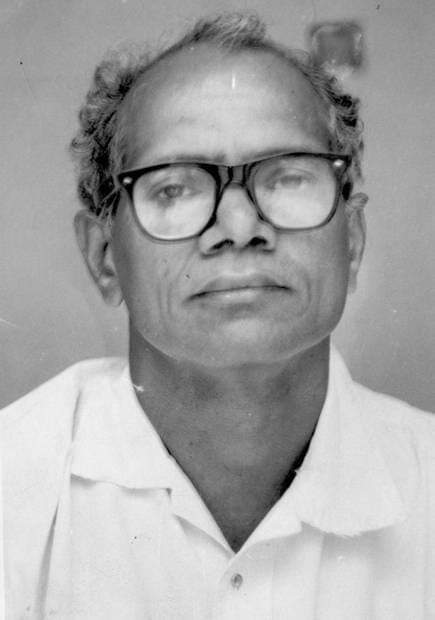
P. Sundarayya (1913-1985)
P. Sundarayya is recognized as a builder of the Communist Party, strategist of the agrarian revolution, defender of Marxist Leninist principles and a man closely associated with the masses. Popularly known as Comrade PS, Puchalapalli Sundarayya was born on 1 May 1913 in Alaganipaduin Nellore district of Andhra Pradesh, India. He completed primary education and entered a college where he studied at entry level until he left in 1930, at the age of 17, to join Gandhi’s Non-Cooperation Movement. He was arrested and spent time in a Borstal school in Rajahmundry where he became acquainted with various communists and local dalit leaders. When released, he organized agricultural workers in his village to protest against bonded labour.
Sundarayya himself marks his becoming a communist to the year 1930. He was 18 years old and a college student at that time. From an early acquaintance of Marxism to becoming a full-fledged communist was a rapid transition as far as PS was concerned. His remarkable abilities as an organizer, his steadfastness and convictions and courage was what attracted Amir Hyder Khan, who had been sent as an organizer of the Party to South India, to approach him to join the Party. The arrest of Amir Hyder Khan in 1933 led to PS stepping into his role as an organizer of the Party. Sundarayya was the first to recognize the necessity to set up the independent class organisation of agricultural workers. He formed the first agricultural workers union in his village, Alaganipadu, in 1932.
In 1934, at the age of 22, PS was taken into the Central Committee of the Party, constituted after the release of the Meerut prisoners. Thus from the outset of the Party becoming an all India organized unit, Sundarayya became part of its leadership. He set about the task of building the Party from scratch with a zeal and determination which was remarkable. In the coastal districts of Andhra which was part of the Madras province and in the Telangana region of Hyderabad, PS toured various parts of the state, in village after village to enlist members and supporters to the Party and to recruit the first cadres who would work among the peasants and workers. He very quickly absorbed Lenin’s principles of Party organisation and became a Party organizer par excellence. While undertaking this herculean task in Andhra, PS also devoted time and energies to developing the Party in other states all over India. During the same year, he became one of the founders of the All India Kisan Sabha and was elected as its joint secretary.
His discussions with the leaders of the Congress Socialist Party from Kerala – P. Krishna Pillai and EMS Namboodiripad – in Mumbai and elsewhere led to his visit to Kerala, after which the first communist unit was set up in 1937. This unit consisted of P. Krishna Pillai, EMS Namboodiripad, K. Damodaran and N. C. Sekhar. Sundarayya was accompanied by S.V. Ghate when this unit was constituted. In the Tamilnadu part of the Madras province, Sundarayya played an important role in contacting and recruiting some of the early communist leaders. He worked with P. Ramamurthy, P. Jeevanandan, B. Srinivasa Rao, A.S.K. Iyengar and others. In 1936, in the presence of PS and S.V. Ghate, the first Communist unit of Tamilnadu was set up. What stood out in this period of Party building was the unique capacity of Sundarayya to identify potential cadres, recruit them and nurture and develop their talent and capacities. He also was able to provide the guidance for them to work in the class and mass organisation. From the outset Sundarayya would concentrate on recruiting students and youth who would then be initiated into work among the basic classes. By consistently working among the masses and identifying with their lives and way of living he also inspired the cadres by his personal example to devote themselves to the people. The discipline observed in the Party by its cadres and members comes from this dedication to serve the people and the consciousness which arises out of working and leading the struggles of the people. Here Sundarayya was a Communist leader unparalleled in putting into practice the principles of a revolutionary organisation.
When the Party was banned, he went underground between 1939 and 1942.When the ban was lifted in 1943, the first Party Congress was held at Bombay and he was again elected to the Central Committee in the second party Congress held at Calcutta. He was the Secretary of the Andhra Communist Party Committee which was formed in 1934.
Sundarayya from the beginning identified the agrarian revolution as the crux of the democratic revolution in India. The fight against landlordism and the old social order that it fosters and the distribution of land of the landlords to the tillers was central to Sundarayya’s strategy for the democratic revolution. The years of work from 1940 onwards which went into the building the Communist Party and the peasant movement and the broad front of the Andhra Mahasabha resulted in the historic Telangana people’s armed uprising. The fight against the jagirdar-landlordism under the Nizam’s rule in Hyderabad, according to Sundarayya “brought to the fore the agrarian question and its role in the democratic revolution”. The Telangana people’s armed struggle began in 1946 and ended in 1951. In this period, ordinary peasants, men and women rose up against the cruel exploitation and violence perpetrated by the big landlords of the region. They had to fight the razakars sent in by the Nizam along with the police and armed forces sent in by the Nizam which led to the development of guerilla squads to defend the lands taken over by the people and their popular gram sabhas. At the height of the movement, 3,000 villages were liberated from the Nizam’s rule and the landlords driven out and the lands taken over. In 1948, the Indian army was sent to not only integrate Hyderabad into the Indian Union but also to suppress the peasant struggle. In all four thousand communists and peasant militants were killed. More than 10,000 communist cadres and people’s militants were thrown into detention camps and jailed for three to four years. More than 50,000 people were beaten, tortured and intimidated in police and army camps. Sundarayya went underground between 1948 and 1952. He was re-elected to the Central Committee in 1952 when a special party conference was held. He was also elected to the Politburo, the highest forum within the Party. He was then re-elected to Central Committee and the Politburo in the third party congress in Vijayawada and again in the fourth congress held at Palakkad. He was elected to the Central Executive and the Central Secretariat of the Party at the fifth Party Congress at Amritsar.
As a committed Marxist-Leninist, he applied the theory to Indian conditions to build the revolutionary movement. When revisionist and ultra-left trends came to the fore, he fought them and safeguarded the correct Marxist-Leninist line. Sundarayya became the General Secretary of the Communist Party of India (Marxist) from its inception in 1964 and played a major role in establishing the Party as a leading force in the left movement in the country.
As a Member of Parliament and state legislature, Sundarayya set an example of how to take up people’s issues. Comrade Sundarayya reared successive generations of cadres and inspired them by his life and example. He donated his whole property to the Party and lived a simple and exemplary life.
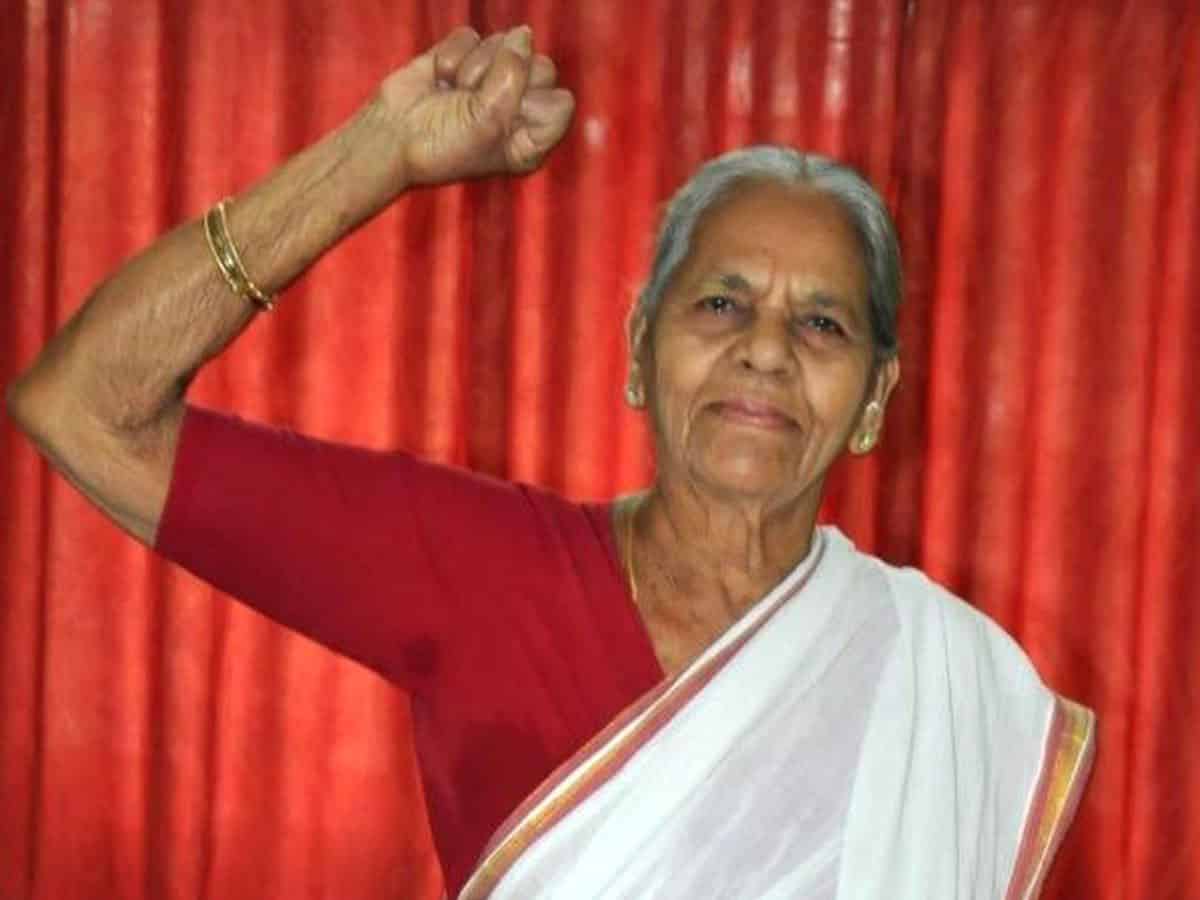
Mallu Swarajyam (1931-2022)
Telangana armed struggle warrior, former Central Committee member of Communist Party of India (Marxist), Mallu Swarajyam was born in 1931 in Kothagudem of Tungaturti Mandal in Suryapeta District. Swarajyam, took part in the Telangana armed struggle along with her brother and displayed supreme bravery. She was an inspiration to many women at a time when it was considered a taboo for women to step out from the house. She went round to villages and worked among the people through her songs and lectures. She also awakened the tribal in Warangal, Karimnagar and Adilabad districts during the armed struggle. Razakars burnt her house in 1947-48 and announced a prize money of Rs. 40000 on her head if anyone informed about her whereabouts. At this point she went underground.
Mallu Swarajyam continued to play active role in politics after the end of the armed struggle. She was elected to the legislative assembly twice in 1978 and 1983 from Thungaturthi constituency and rendered valuable services to the people of not only her constituency but also the entire state. She also served as the Secretary of the AIDWA Andhra Pradesh state committee
She died in March 2022 at the age of 91.
PARTY DOCUMENTS AND RELATED MATERIALS
Dange Unmasked. Repudiate the Revisionists! (1964)
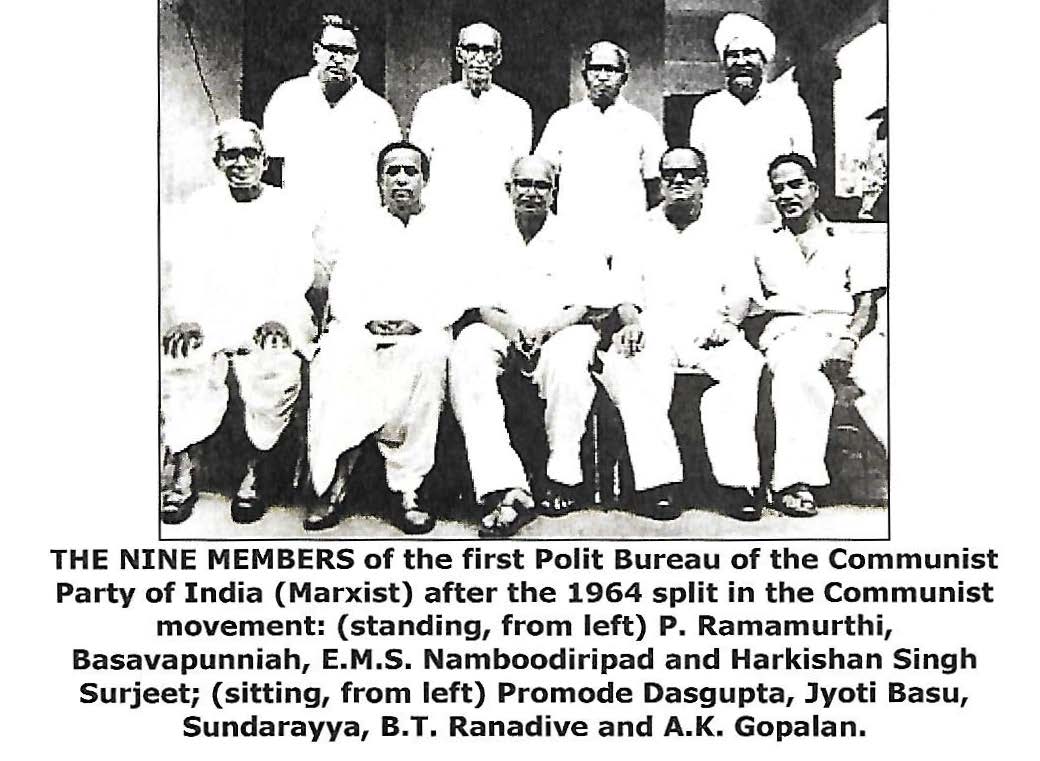
National Integration and Communist Party, By E.M.S. Namboodiripad (1964)
Draft Programme of the Communist Party of India (Drafted by M. Basuvapunnaiah) (April 1964)
A Brief Critical Note on the Programme Drafts, By E.M.S. Namboodiripad (1964)
Regarding the 1964 Programme Document of the CPI(M) By Parimal Dasgupta (1964)
Fight Against Revisionism, Political-Organizational Report Adopted at the Seventh Congress (1964)
On the Tasks of the Party in the Present Situation, Resolution Adopted at the Seventh Congress (1964)
Introducing the Draft Programme of the CPI(M) at the 7th Congress by M. Basavapunnaiah
Programme of the Communist Party of India (Marxist) Adopted at the Seventh Congress (1964)
Constitution of the Communist Party of India (Marxist) Adopted at the Seventh Congress (1964)
On the Seventh Congress of Our Party, By P. Rammurti for the West Bengal State Committee, Communist Party of India (1964)
First Editorial of People's Democracy: Our Mission by Jyoti Basu (1965)
Message of Greeting to the 5th Congress of the Party of Labor of Albania Signed by Sundaraja (November 1966)
Present Situation and Tasks by the Committee for the Struggle Against Revisionism (December 1966)
Against Anti-Party Tendencies, by B. T. Ranadive
Behind Revolutionary Phrases, Disorganizing Struggle Against Imperialism,
People's Democracy (July 2, 1967)
Logic of Anti-Leninism in Theory and Practice,
People's Democracy (July 9, 1967)
Ultras' Thesis: Inverted Advocacy of Congress Rule, People's Democracy (July 16, 1967)
Phrase Mongering Replaces Building Up of Struggles, People's Democracy (August 6, 1967)
'Left' Tactics Will Delink Party from Mass Struggles,
People's Democracy (August 13, 1967)
'Left'-Opportunist Line Means Liquidation of Party as Centralized Organization,
People's Democracy (August 20, 1967)
In Defense of the C.C. Draft, by B. T. Ranadive
'Left' Phrase-Mongerers Expose Their Utter Bankruptcy,
People's Democracy (February 4, 1968)
'Left-Revisionists' Unashamed Volte-Face,
People's Democracy (February 11, 1968)
The Slogan of United Action,
People's Democracy (February 18, 1968)
More on the Slogan of Unity in Action,
People's Democracy (February 25, 1968)
The National Liberation Movement,
People's Democracy (March 3, 1968)
On the Concept of Peaceful Coexistence,
People's Democracy (March 10, 1968)
Soviet Economic Aid, U.S. Imperialism, and Revisionism of the CPSU Leadership,
People's Democracy (March 17, 1968)
Lack of Understanding of Lenin's Teachings,
People's Democracy (March 24, 1968)
Election Manifesto of the Communist Party of India (Marxist) (1967)
Divergent Views Between Our Party and the C.P.C. on Certain Fundamental Issues of Programme and Policy (Excerpts) (September 1967)
On the Ideological Issues in the International Communist Movement, by D. Venkateswara Rao (October 1967)
Materials of the Andhra Communist Plenum, January 1968
Resolution Submitted by T. Nagi Reddy and C. Pulla Reddy
Resolution Submitted by Kolla Venkayya
AP Plenum Rejects the Neo-Revisionist Ideological Draft
Rebellion is Right!, (on the Andhra State Party Plenum, CPI (M)) [Liberation, Vol. I, No 5 (March 1968)]
Adventurists' Slogan of "Armed Struggle" Here and Now - What Does it Really Mean?, by Harekrishna Konar (March-April 1968)
Fiasco of Revisionism, by B. T. Ranadive (April-June 1968)
Stand on Ideological Issues (April 1968)
Letter to Andhra Comrades from the Central Committee of the Communist Party of India (Marxist) (1968)
An Open Letter to Party Members (Reply to the Letter to Andhra Comrades) from four leading comrades in AP (1968)
Editorial of the People's Democracy, June 23, 1968: Party will Emerge More United and Stronger [on the expulsion of Nagi Reddy, Pulla Reddy, D. Venkateshwara Rao and Kolla Venkayya]
The Rebels Press Statement (June 1968)
Rebuff the Rebels, uphold Party Unity, Joint statement of P. Sundarayya and M. Basavapunnaiah on behalf of the Polit Bureau of CPl(M) (June 1968)
On the Defectors in Andhra Pradesh Resolution Adopted by the Polit Bureau of the Communist Party of India (Marxist) (July 1968)
Why the Ultra-'Left' Deviation? An Examination of the Basic Causes of Left Defections in Special Reference to Andhra (Adopted by the Central Committee of the CPI(M) in its meeting held in Calcutta, October 5-9, 1968)
Report of the Proceedings of the Eighth Congress of the Communist Party of India (Marxist) (January 1969)
The Role of Stalin as the CPI(M) Views It (1970s)
Documents on an Expulsion from the CPI (Marxist), Frontier, (May-August 1971)
Stop This Reign of Terror in West Bengal by the Centre of Indian Trade Unions, West Bengal Committee (January 1972)
Bihar: Division Within CPI (M), By P.N.K. Singh (February 1972)
After the rigged elections: Face the Ordeal with Courage and Determination, by West Bengal State Committee (March 1972)
Bihar: CPM: Split Within a Split, By P.N.K. Singh (May 1972)
Programme of the Communist Party of India (Marxist) Amended by the 9th Congress in Madurai on June 27 - July 2, 1972
Telangana People's Struggle and Its Lessons, By P. Sundarayya (1972)
My Resignation From the Offices of General Secretary and PolitBureau Membership, By P. Sundarayya (1975)
The "Statement of Policy" Reviewed, By M. Basavapunnaiah (1976)
Excerpts from Political Resolution Adopted at the Tenth Congress, April 2-8, 1978
Review-Report Adopted at the Tenth Congress, April 2-8, 1978
Excerpts from Political Resolution Adopted at the Tenth Congress, April 2-8, 1978
Central Committee Report on Political Development Calcutta, June 24-28, 1981
Kerala Society and Politics. An Historical Survey, By E.M.S. Namboodiripad (1984)
Naxalism Today, By Prakash Karat (1985)
Party Line on Current Tactics, By E.M.S. Namboodiripad (1985)
Revolt of the Warlis, By Godavari Parulekar [AIKS Golden Jubilee Series No. 1] (1986)
Tebhaga Struggle of Bengal, By M. Abdullah Rasul [AIKS Golden Jubilee Series No. 2] (1986)
The Historic Punnapra-Vayalar Struggle, By V.S. Achuthanadan [AIKS Golden Jubilee Series No. 3] (1986)
Anti-Betterment Levy Struggle in Punjab, By Harkishan Singh Surjeet [AIKS Golden Jubilee Series No. 4] (1986)
Struggle of the Surma Valley Peasantry, By Biresh Misra, Pranesh Biswas, and Achintya Bhattacharya [AIKS Golden Jubilee Series No. 5] (1986)
Fifty Years of the Kisan Sabha, By E.M.S. Namboodiripad [AIKS Golden Jubilee Series No. 6] (1986)
Gana Mukti Parishad in Building the Peasant Movement in Tripura, By Dasrath Deb [AIKS Golden Jubilee Series No. 7] (1986)
What the AIKS Stands For, By Harkishan Singh Surjeet [AIKS Golden Jubilee Series No. 8] (1986)
On Certain Ideological Issues Resolution Adopted at the 14th Congress of the CPI(M) Madras, January 3-9, 1992
The 15th CPI(M) Congress by Harkishan Singh Surjeet (1995)
Review Report On 1996 General Elections Adopted By The Central Committee, July 27-29, 1996
Remembering Comrade Dasarath Deb barma (1916 - 1998)
Report on Current Political Developments Adopted At the May 7-8, 1999 Central Committee Meeting
Programme Updated at the Special Conference at Thiruvananthapuram in October 2000
Report on Political Developments Adopted At The August 11-12, 2001 Meeting Of The Central Committee
CPI(M) Policy Document on Tribal Question (2002)
Political Resolution Adopted at the 17th Congress, Hyderabad, March 19-24, 2002
Political-Organisational Report Adopted At the 17th Congress Hyderabad, March 19-24, 2002
Political Resolution Adopted at the 18th Congress, New Delhi, April 6-11, 2005
Political-Organizational Report Adopted at the 18th Congress, New Delhi, April 6-11, 2005
’Maoism’: An Exercise in Anarchism by Anil Biswas (2005)
Political Resolution Adopted At the XIX Congress of the Communist Party of India (Marxist) March 29 to April 3, 2008 Coimbatore
Political-Organizational Report Adopted At the XIX Congress of the Communist Party of India (Marxist) March 29 to April 3, 2008 Coimbatore
On Rectification Campaign Edited version of the Resolution adopted by the Central Committee, October 23-25, 2009
Review Report of the Implementation of the Political-Tactical Line of 19th Congress Adopted at the Extended Meeting of the Central Committee, August 7 to 10, 2010, Vijayawada
Political Resolution Adopted at the 20th Congress of CPI(M) Kozhikode, Kerala, April 4-9, 2012
Resolution on Some Ideological Issues Adopted at the 20th Congress of CPI(M) Kozhikode, Kerala, April 4-9, 2012
Draft Political Resolution For the 21st Congress (Adopted by the Central Committee at its January 19-21, 2015 Meeting, Hyderabad)
Draft Review Report on the Political-Tactical Line Adopted by Central Committee at its Meeting, January 19-21, 2015, Hyderabad)
Political Resolution Adopted at the 21st Congress Of The Communist Party of India (Marxist) Visakhapatnam, April 14-19, 2015
Report on Organization Adopted by the Plenum on Organization Kolkata, December 27-31, 2015
October Revolution: A New Path for Humanity On the occasion of the year long Centenary Celebrations, 2016-17
Political Resolution Adopted at the 22nd Congress Of The Communist Party of India (Marxist) Hyderabad, April 18-22, 2018
100 Years of the Communist Party of India (1919)
Political Resolution Adopted at the 23rd Congress held on April 6-10, 2022 at Kannur